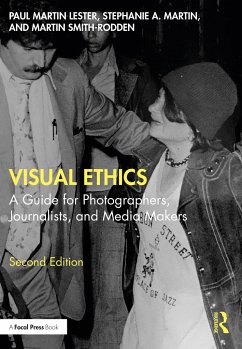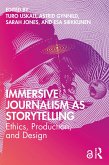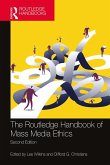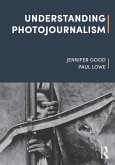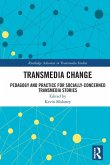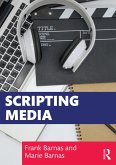An indispensable guide to visual ethics, this book addresses the need for critical thinking and ethical behavior among students and professionals responsible for a variety of mass media visual messages.
Written for an ever-growing discipline, authors Paul Martin Lester, Stephanie A. Martin, and Martin Rodden-Smith give serious ethical consideration to the complex field of visual communication. The book covers the definitions and uses of six philosophies, analytical methods, cultural awareness, visual reporting, documentary, citizen journalists, advertising, public relations, typography, graphic design, data visualizations, cartoons, motion pictures, television, computers and the web, augmented and virtual reality, social media, the editing process, and the need for empathy. At the end of each chapter are case studies for further analysis and interviews with thoughtful practitioners in each field of study, including Steven Heller and Nigel Holmes. This second edition has also been fully revised and updated throughout to reflect on the impact of new and emerging technologies.
This book is an important resource for students of photojournalism, photography, filmmaking, media and communication, and visual communication, as well as professionals working in these fields.
Written for an ever-growing discipline, authors Paul Martin Lester, Stephanie A. Martin, and Martin Rodden-Smith give serious ethical consideration to the complex field of visual communication. The book covers the definitions and uses of six philosophies, analytical methods, cultural awareness, visual reporting, documentary, citizen journalists, advertising, public relations, typography, graphic design, data visualizations, cartoons, motion pictures, television, computers and the web, augmented and virtual reality, social media, the editing process, and the need for empathy. At the end of each chapter are case studies for further analysis and interviews with thoughtful practitioners in each field of study, including Steven Heller and Nigel Holmes. This second edition has also been fully revised and updated throughout to reflect on the impact of new and emerging technologies.
This book is an important resource for students of photojournalism, photography, filmmaking, media and communication, and visual communication, as well as professionals working in these fields.
"The second edition of Visual Ethics updates our understanding of this exciting and ever-changing area of scholarship, media practice, and public concern. With new topics, case studies, and interviews by Paul Martin Lester, Stephanie A. Martin, and Martin Rodden-Smith, the work is engaging, relevant, and timely. This book should be read and consulted by politicians, journalists, and researchers alike. It is especially accessible to students exploring the confusing and often troubling effects of images on their lives."
David D. Perlmutter, Professor and Dean of Media & Communication, Texas Tech University, USA
"Informative, engaging, and inviting, this new edition of Visual Ethics is an indispensable resource for media professionals as well as for students and scholars in this exciting and rapidly changing field."
Timothy Beal, Florence Harkness Professor of Religion and Director of h.lab, Case Western Reserve University, USA
David D. Perlmutter, Professor and Dean of Media & Communication, Texas Tech University, USA
"Informative, engaging, and inviting, this new edition of Visual Ethics is an indispensable resource for media professionals as well as for students and scholars in this exciting and rapidly changing field."
Timothy Beal, Florence Harkness Professor of Religion and Director of h.lab, Case Western Reserve University, USA

